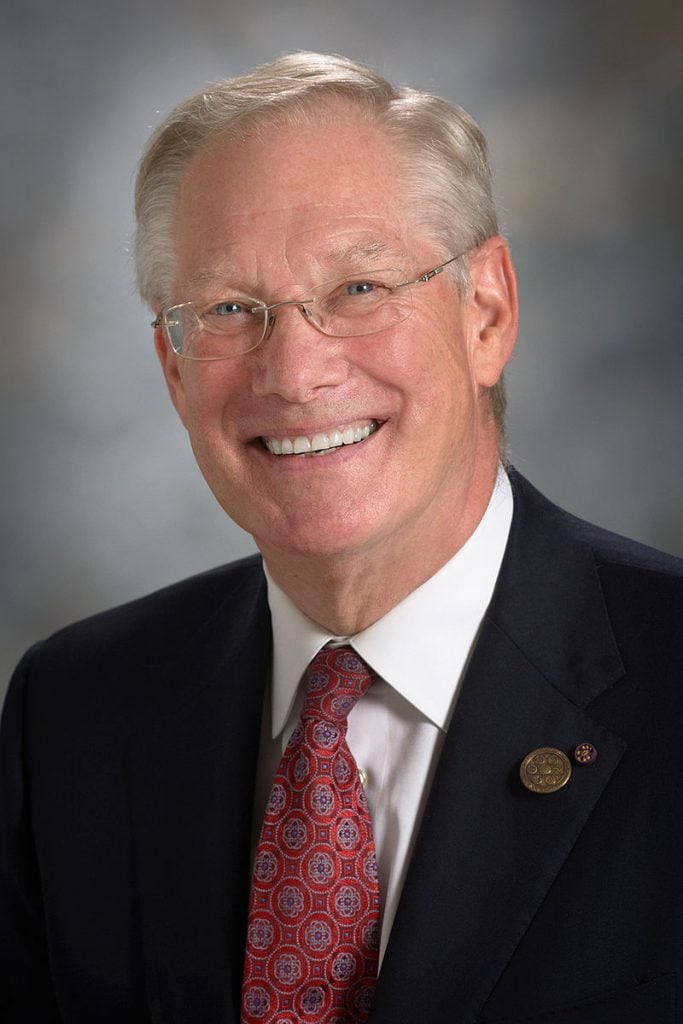
Pharmacologist V. Craig Jordan, OBE, DSc, PhD, a 2018 recipient of the Endocrine Society’s Gerald D. Aurbach Award for Outstanding Translational Research, passed away at the age of 76.
Jordan, a professor of Breast and Medical Oncology and Molecular and Cellular Oncology at The University of Texas MD Anderson Cancer Center, discovered selective estrogen receptor modulators and developed breakthrough breast cancer treatments, died June 9 at his home in Houston.
Known as the “father of tamoxifen,” Jordan showed that the drug, originally created to block estrogen and prevent pregnancy, could stop the hormone’s ability to unlock tumor cells and cause cancer.
Jordan gave the failed contraceptive a second chance as a breast cancer treatment, saving the lives of millions of women around the world. Tamoxifen remains one of the world’s most successful cancer drugs and is on the World Health Organization’s list of essential medicines.
In 1977, Jordan discovered tamoxifen’s most potent metabolite with its strategic hydroxyl leading to the development of the FDA-approved, hydroxyl-containing SERMs, raloxifene, and bazedoxifene.
In 1987, Jordan showed that tamoxifen and keoxifene maintained bone density in ovariectomized rats and prevented mammary cancer. His research was rejected by osteoporosis journals as “anti-estrogens cannot build bone, only estrogens can.”
In 1990, he wrote “important clues have been garnered about the effects of tamoxifen on bones and lipids so it is possible that derivatives could find applications to retard osteoporosis or atherosclerosis.”
In 1992, Jordan’s data led to a clinical trial that confirmed tamoxifen prevents decreases in bone density. In 1994, keoxifene was renamed raloxifene. In 1999, raloxifene was proven to maintain bone density and reduce breast cancer incidence in postmenopausal women. Jordan chaired the breast cancer committee evaluating raloxifene for osteoporosis treatment.
Today, there are five FDA-approved SERMs (tamoxifen, raloxifene, toremifene, basedoxifene, ospemiphene) with discovery links to Jordan’s laboratory.
These medicines are now used for the treatment of all stages of breast cancer, breast cancer risk reduction in high-risk women, osteoporosis treatment, painful intercourse alleviation, and menopausal symptoms relief.
“Dr. Jordan leaves behind a remarkable legacy that will continue to influence cancer research and treatment for generations to come,” Peter WT Pisters, president of MD Anderson, said in a statement. “Craig’s passing is a profound loss to the scientific community and all those who had the privilege of knowing and working with him.”
Born in New Braunfels, Texas, Jordan held dual American and British citizenship. He was the Dallas/Ft. Worth Living Legend Chair for Cancer Research at MD Anderson.
Throughout his career, Jordan received many honors. He was a fellow of the British Pharmacological Society and a member of the American Society for Pharmacological and Experimental Therapeutics.
He was elected to the National Academy of Sciences in 2009 and the National Academy of Medicine in 2017. Aside from the Endocrine Society’s Aurbach Award for Translational Research in 2018, Jordan received the Sir James Black Award from the British Pharmacological Society in 2015, and the American Society for Pharmacology and Experimental Therapeutics’ Reynold Spector Award in 2019.
In 2002, Queen Elizabeth II named him Officer of the Most Excellent Order of the British Empire for his work with tamoxifen and his services to international breast cancer research. In 2019, Queen Elizabeth II appointed him Companion of the Most Distinguished Order of St. Michael and St. George for services to women’s health, an honor that celebrates his discovery and development of SERMs.
“Dr. Jordan’s impact extended far beyond his scientific achievements. As an educator and mentor, he inspired and shaped the careers of countless young researchers, sharing his knowledge, passion, and unwavering dedication,” Gabriel Hortobagyi, professor of Breast Medical Oncology, said in a statement. “His compassionate nature made him a beloved figure among his colleagues and students, who remember him not only as an exceptional scientist but also as a kind and caring individual.”
Dr. Jordan leaves behind a remarkable legacy that will continue to influence cancer research and treatment for generations to come.

